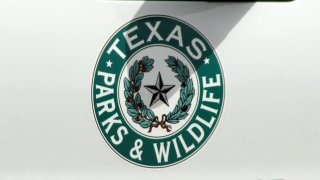
The Texas Parks and Wildlife Department is launching a new license plate to raise money to help conserve monarch butterflies and other non-game, at-risk species native to Texas.
According to the Texas Parks and Wildlife Department, the public is invited to vote for their favorite design for the new monarch butterfly conservation license plate through an online survey.
The survey will be open until Oct. 3.
Participants can choose from three images of monarch butterflies to be featured on the license plate, helping the department to decide which should be featured on the new specialty plate.
Get DFW local news, weather forecasts and entertainment stories to your inbox. Sign up for NBC DFW newsletters.
"The monarch butterfly is a species that is beautiful and iconic in that it is one of nature's great migration stories," John Davis, TPWD's Wildlife Diversity Program Director, said. "This species migrates through Texas from Mexico in the spring making its way to the northern extremes of the U.S. and into Canada, then reverses that feat in the fall to overwinter in Mexico. This great migratory story is in jeopardy with the overwintering population experiencing precipitous declines in the last decade. By adding the monarch to our family of plates, we hope to increase support for this beautiful migration event and through our conservation efforts, brighten the future for this, and many other species."
The Texas Parks and Wildlife Department said its Conservation License Plate Program has raised around $10 million in the last 20 years for wildlife and habitat conservation in Texas.
The 10 conservation plate designs featured animals like a horned lizard, largemouth bass, hummingbird, white-tailed deer, bluebonnet, and a desert bighorn sheep, the department said.
Texas News
News from around the state of Texas.
According to the Texas Parks and Wildlife Department, the plates benefit Texas rivers, state parks, big game research and management, and non-game wildlife species management.
All conservation specialty plates cost $30 a year, with $22 going to the Texas Parks and Wildlife Department to support various programs and efforts.
The Texas Parks and Wildlife Department said plates can be purchased for vehicles, RVs/travel trailers, trailers, and motorcycles.
"TPWD uses conservation license plate funds to conduct research and management activities benefitting the state's most at-risk species," Davis said. "The conservation license plate program creates license plates that people enjoy and want to buy while also knowing their plate fee goes to the worthy cause of helping wildlife and plants in Texas."
For more information on TPWD's conservation licenses plates, visit www.conservationplate.org